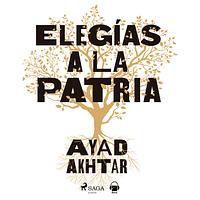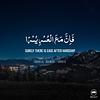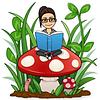You need to sign in or sign up before continuing.
Take a photo of a barcode or cover
I honestly am not really sure how I feel about this book...and I think maybe that is the point?! Blending fiction with autobiography with narrative essays this crosses literary boundaries in multiple ways. Aktar is a an American born Muslim of immigrant parents. This is a raw portrayal of himself, his relationships and his image as an American and an outsider that leaves one pondering many things!
This was a stunning work - truly genre-bending. Explores the life of an American born to immigrants, who takes the reader through his complex experiences in post-911 America.
challenging
emotional
reflective
medium-paced
Plot or Character Driven:
N/A
Strong character development:
N/A
Loveable characters:
Yes
Diverse cast of characters:
Yes
Flaws of characters a main focus:
Yes
In this sprawling vision of contemporary America, Akhtar ingeniously weaves together memoir, fiction and cultural analysis, resulting in a sort of Frankenstein’s monster of literary brilliance. Having already won one Pulitzer Prize, this ambitious “novel” could very well add further contents to Akhtar’s trophy cabinet.
Like the tree that adorns its cover, the book branches out- densely, digressively, compellingly- into a range of topics and anecdotes, but the roots are very much in an exploration of what could be reductively/pretentiously called “A Portrait of The American Artist As A Young Muslim”.
However, it’s far more complex than that. It is hard to know here what is memoir and what is fiction and, in his opening chapter about the Rise of Trump, Akhtar diagnoses America as having “a terrifying lust for unreality that has engulfed us all”. Akhtar, the author, who is also a playwright narrates this book in the voice of Akhtar, a playwright, and speaks in great detail about his background, controversies surrounding his Pulitzer-prize winning play and, centrally, his relationships with his Pakistan-born parents, all of which are, seemingly, autobiographical truths. And yet, he opens by declaring that the work is fiction and stamps the words ‘a novel’ on the front cover.
Epistemological ambiguities do not matter though: this is a remarkable book. There is the semblance of a narrative arc throughout the essays: the story of Akhtar and his father. However, the novel could best be described as a jigsaw, made up of many inter-locking but ultimately separate parts. Topics include the rise of Islamophobia after 911, rampant mercantilism and capitalism, elegiac reflections on ‘East v West’ belonging, the role of art and faith and politics in an age of bellicose partisanship, and so much more, all told through very personal, intimate and self-deprecating voice. It is endlessly fascinating, highly readable and a true masterwork of literary creation
Like the tree that adorns its cover, the book branches out- densely, digressively, compellingly- into a range of topics and anecdotes, but the roots are very much in an exploration of what could be reductively/pretentiously called “A Portrait of The American Artist As A Young Muslim”.
However, it’s far more complex than that. It is hard to know here what is memoir and what is fiction and, in his opening chapter about the Rise of Trump, Akhtar diagnoses America as having “a terrifying lust for unreality that has engulfed us all”. Akhtar, the author, who is also a playwright narrates this book in the voice of Akhtar, a playwright, and speaks in great detail about his background, controversies surrounding his Pulitzer-prize winning play and, centrally, his relationships with his Pakistan-born parents, all of which are, seemingly, autobiographical truths. And yet, he opens by declaring that the work is fiction and stamps the words ‘a novel’ on the front cover.
Epistemological ambiguities do not matter though: this is a remarkable book. There is the semblance of a narrative arc throughout the essays: the story of Akhtar and his father. However, the novel could best be described as a jigsaw, made up of many inter-locking but ultimately separate parts. Topics include the rise of Islamophobia after 911, rampant mercantilism and capitalism, elegiac reflections on ‘East v West’ belonging, the role of art and faith and politics in an age of bellicose partisanship, and so much more, all told through very personal, intimate and self-deprecating voice. It is endlessly fascinating, highly readable and a true masterwork of literary creation
Profoundly personal storytelling. I couldn’t put it down.
In 3 words: Powerful, Thought-provoking, Convicting
"A day spent reading is not a great life. But a life spent reading is a wonderful life." So very true.
What does it mean to be an American? What do you do if the color of your skin or the sound of your name is a provocation? This book is masterful in its storytelling. The stories we believe and the stories we tell ourselves are crucial to our identity as a nation, a community, and as individuals. The idea of the American self is perpetuated by the concept of American exceptionalism, to our detriment in many ways. In this book that blends facts and fiction, the author explores the similarities between post 9/11 Pakistan and the era of Trumpism. He laments feeling persistently humiliated and attacked in the only country he has ever known, America. Perhaps the only course of action available to him was to stop pretending he felt like an American. The author describes our national mood as "Hobbesian: nasty, brutish, nihilistic." He suggests (rightly so I think) that "Trump is not an aberration or idiosyncrasy but a human mirror in which to see all we'd allowed ourselves to become."
My favorite quote from the book - "The established majority takes its we-image from a minority of its best, and shapes a they-image of the despised outsiders from the minority of their worst." - Norbert Elias (German Jewish sociologist)
"A day spent reading is not a great life. But a life spent reading is a wonderful life." So very true.
What does it mean to be an American? What do you do if the color of your skin or the sound of your name is a provocation? This book is masterful in its storytelling. The stories we believe and the stories we tell ourselves are crucial to our identity as a nation, a community, and as individuals. The idea of the American self is perpetuated by the concept of American exceptionalism, to our detriment in many ways. In this book that blends facts and fiction, the author explores the similarities between post 9/11 Pakistan and the era of Trumpism. He laments feeling persistently humiliated and attacked in the only country he has ever known, America. Perhaps the only course of action available to him was to stop pretending he felt like an American. The author describes our national mood as "Hobbesian: nasty, brutish, nihilistic." He suggests (rightly so I think) that "Trump is not an aberration or idiosyncrasy but a human mirror in which to see all we'd allowed ourselves to become."
My favorite quote from the book - "The established majority takes its we-image from a minority of its best, and shapes a they-image of the despised outsiders from the minority of their worst." - Norbert Elias (German Jewish sociologist)
okay book it seems. i don't want to read about trump
This one took me a long time to get through. Akhtar is clearly a talented writer, and there are parts of this narrative (fiction? memoir?) that captivated me. The themes he explores are powerful and prescient. But sometimes the writing style seemed to verge into self-indulgent affectation that feels needlessly inaccessible. Perhaps that's just a peeve of mine, and has nothing to do with the writer, for what it's worth.
challenging
emotional
reflective
medium-paced
Plot or Character Driven:
Character




